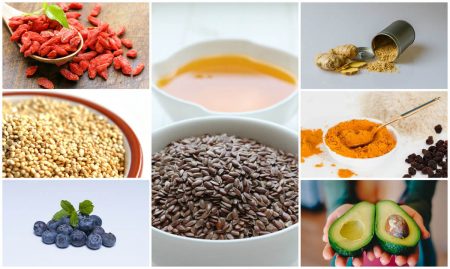
A key part of reaching your athletic goals is selecting the right sports nutrition plan. It's important to have a balanced diet, and to make sure that you're not consuming too many calories and too little protein. While many people assume that carbohydrates are the only food groups needed for an athlete, they're actually the most crucial part of the diet. The correct balance of carbohydrate, proteins, and other fats can help fuel your body and enable you to reach your goals.
Athletes should consume meals at least three hours prior to a competition or exercise to ensure their bodies have time to digest it and minimize any digestive upsets. It is essential to eat a balanced diet that includes carbohydrates, protein, fat, and limited intake of starchy foods and junk food. Balanced nutrition is key to ensuring you eat lean meats and fruits, vegetables, whole grains, and other healthy foods. These foods provide great nutrition, but aren't good for calories.

Before an event, carbohydrates are the most important food that an athlete needs to eat. Carbohydrates are the main source for energy. Foods rich in carbohydrates include cereals, milk, bread, cereals, grains, fruits and vegetables. Consuming carbohydrates in small quantities is the best way to get them. Avoid high-fat and high-protein meals. A high-carbohydrate food should be consumed at least 2 hours before an event to get the best results.
An athlete should eat a balanced diet that is rich in complex carbohydrates, healthy fats, and vegetables. A balanced diet should consist of between 45 and 66% carbohydrates, 25% to 35% fat, 10% to 30% proteins, and 25% to 30% to 30% calories. A good habit to follow is to drink lots of water before, throughout, and after sports. The right food at the right time will maximize your performance and reduce muscle damage due to oxidative stress. In addition to a proper diet, athletes should also incorporate supplements to improve their recovery process.
The best diet for athletes includes a balance of carbohydrates and fats. After digestion, carbohydrates are reduced into glucose, which the body's primary fuel source. It is converted into glycogen. This type of fat is stored in muscle tissue, and is essential for an athlete's training. Athletes can boost their glycogen levels by eating carbohydrates and fatty foods prior to and after events. This will help them avoid dehydration.

Athletes must also consume adequate water. Good health requires adequate hydration. To maintain its activities, the body needs to be able to access adequate fluids and sodium. This is the best way for muscle cramps to be avoided and to improve performance. It is important for athletes to keep their diet in line with their training program. In the case of endurance athletes, this is not easy. This can also lead to headaches and cramps.
FAQ
Do Men Need A Gym Membership?
For men, a membership to a gym is not required. But, if you do join a gym, it will make your money go further.
Most gyms offer free trial members, which allows you to use the facilities without paying anything.
You can use the gym whenever you like, and it won't cost anything. You can cancel or modify your membership anytime you feel you don't like it.
Is Cardio Better Than Strength Training?
Both are equally great. But cardio is a much better choice if you want to gain muscles faster.
Cardio burns a lot more calories per minute that strength training and is more effective at burning fat.
Strength training is a great way to build muscle mass. However, it takes more effort than cardio.
Is Egg good for man?
The egg has all the nutrients the body requires. It helps to maintain strong bones and healthy hearts and lungs and stabilize blood pressure.
Eggs are a great source of protein, vitamins A and B12, D. E. K, calcium, magnesium, selenium and riboflavin.
The egg yolk has high cholesterol. However, it does not contain saturated fat. Eggs have less saturated oil than many other foods.
In addition, they are low in sodium and calories. They are also very versatile because you can cook them any way you want. You can cook them in many ways, including poaching, boiling, hard-boiling, baking, and scramble.
They are incredibly nutritious and easy to prepare.
Two whole eggs should be eaten each day. You don't have to eat eggs.
Eggs provide essential nutrients needed by our bodies. Include eggs in your daily diet.
What is the fastest way to transform my body?
It all starts by changing your mindset. You must first decide to change.
Once you decide that you want to change, it is time to set a minimum of 3 months' commitment to your fitness goals.
Then, find a program to fit your life.
Realistic expectations are also important. If you are unwilling to put in the time and effort necessary to achieve your goal, don't waste your money on a gym membership.
Instead, make use of your time outdoors.
Walk around your block for an hour every day to burn calories and help you lose 1 lb per month.
Now that you have an idea of what you want, start planning how to arrange your life to follow this plan.
This includes making sure that you schedule a time to work out every morning before leaving for work and take breaks throughout the day to move.
You should also reward yourself for reaching milestones. You can buy accessories and clothes that reflect your success.
Which exercise is best for men
It depends on what you're looking for. If you want to lose weight, cardio workouts are great because they burn calories faster than strength training exercises.
Strength training, on the other hand, is better if you are looking to increase muscle mass.
Both types of exercise are proven to be beneficial if you're looking to improve your overall health.
I recommend HIIT, or sprint interval training, if you want fast results. This type training will help you quickly lose fat by increasing your metabolism. This type of training also increases your endurance, allowing you to train even when you are tired.
Statistics
- 10 pounds in a month is likely during a lean bulking phase, especially for beginners. (muscleandstrength.com)
- According to the American Heart Association, blood pressure should be checked at least once every two years, beginning at age 20. (my.clevelandclinic.org)
- Get free shipping and 25% off today. (healthline.com)
- Candidates and applicants must pass all four tests at 70% (minimum level) to graduate from Basic Deputy U.S. Marshal (BDUSM) Training. (usmarshals.gov)
- By John Thompson Take a whopping 38% off a set of PowerBlock Pros. (menshealth.com)
External Links
How To
What nutrients is a man supposed to consume daily?
For healthy growth and development, men need to eat a balanced diet. Your body needs vitamins, minerals and nutrients as well as carbohydrates, proteins, fats, carbohydrate, fiber, and other essential components.
You also need specific nutrients for different times in the day. For example, when you sleep, your body uses energy from food to make hormones, antibodies, and enzymes. Protein is needed to build muscles and repair tissue damaged when you wake up.
At night, your body breaks down fat and stores the extra energy as glycogen. Your body still requires sufficient nutrients and calories even though it needs less calories. You can have a snack at night if you feel hungry.
To fuel your muscles while you train, you will need sufficient carbs as well as protein. Muscle soreness can occur if you work out hard.
To prevent this from happening, you need to consume carbs or protein within two hours. Your body will breakdown stored glycogen and provide you with glucose for energy.
In addition, you must consume protein immediately after completing your workouts. This will prevent muscle tissue from being damaged while you sleep.
Lactic acid is produced by the body during periods of intense exercise. It builds up in your bloodstream, which can lead to fatigue. Eat foods high in carbohydrate, such as fruits, vegetables, to avoid this.
Carbohydrates can give your body the energy it requires to recover from intense exercise.
Your diet may include lean meats like fish, eggs, milk cheese, yogurt or beans as well as lean proteins such as fish, eggs, egg yolks, cheese, yogurt, bean, peanuts and seeds.
All these foods are high-quality sources of protein. Protein aids in muscle growth and repair of damaged tissues. Protein provides the amino acid your body needs for testosterone and sexhormone production.
Good skin, hair, and joint health requires adequate dietary fats. Healthy men require between 20% and 35% of total caloric intake from fat.
Fat helps protect your heart health and prevents cancer. It helps keep your brain working properly.
Vegetable oils, such as olive oil, sunflower oil or corn oil, soybean oil and peanut oil, can supply most of the fats you require.
These oils are rich in monounsaturated essential fatty acids (MUFAs). MUFAs can lower cholesterol levels and reduce inflammation. They protect your cells from damage by free radicals.
Saturated oils (SFAs), found primarily in animal products such meats, dairy products and butter, are known to raise LDL ("bad") cholesterol. SFAs can raise LDL ("bad") cholesterol levels and increase triglycerides. They are also good for weight loss and belly fat.
Polyunsaturated oils (PUFAs), are found in plant-based foods like nuts, seeds and vegetable oils. PUFAs can improve cardiovascular function and reduce inflammation. They can also control blood sugar levels and cholesterol.
Low HDL ("good") cholesterol can lead to erectile problems in men. A high intake of saturated fats leads to higher levels of bad cholesterol.
Men who eat large quantities of red meats or pork may develop prostate problems. When heated, nitrates are converted to nitrosamines. These compounds cause cancer.
Most processed meats have nitrites and harmful chemicals. You should avoid them.
The American Heart Association recommends limiting red meat intake to two meals per week. Choose poultry, fish and legumes instead.